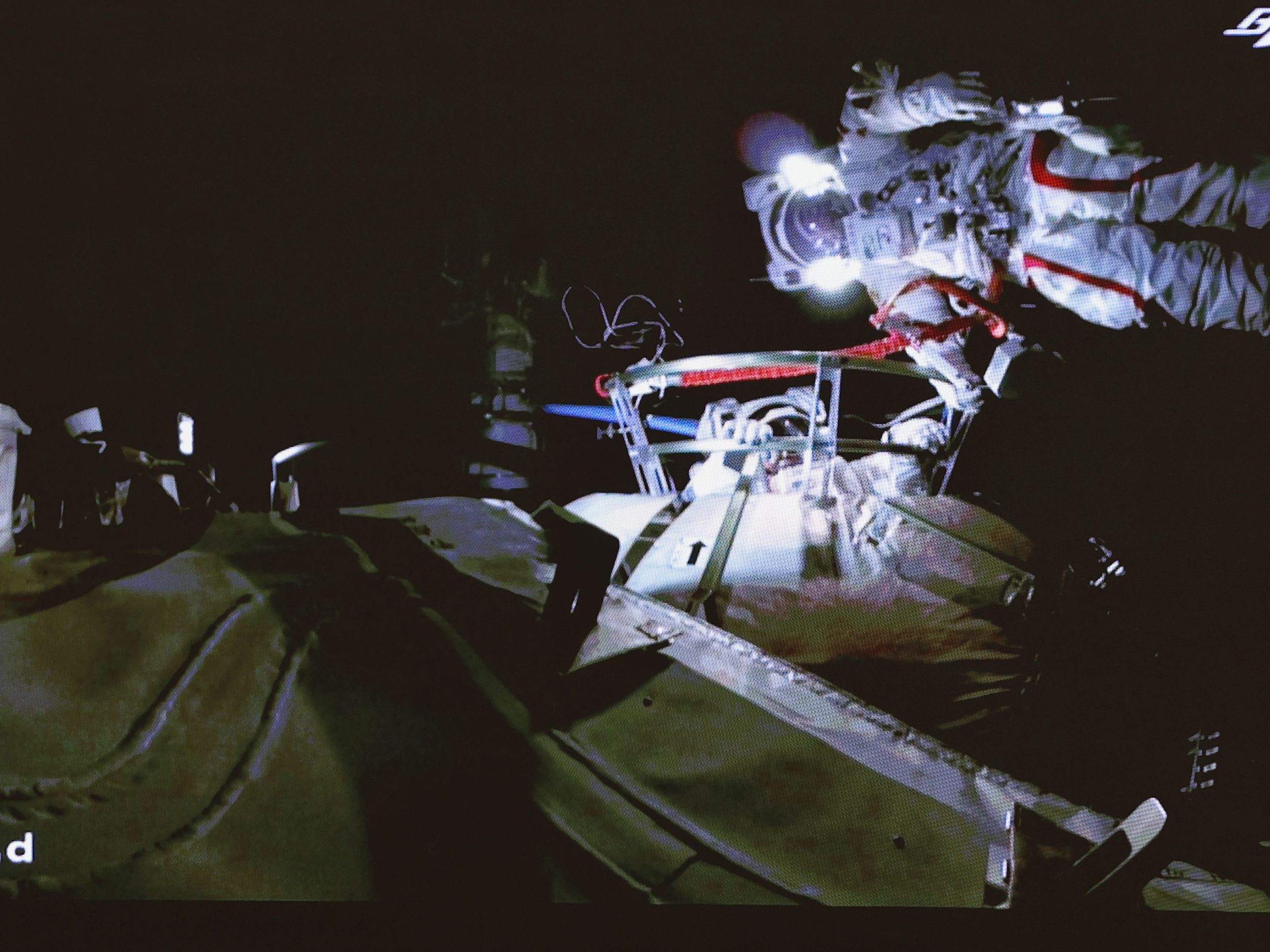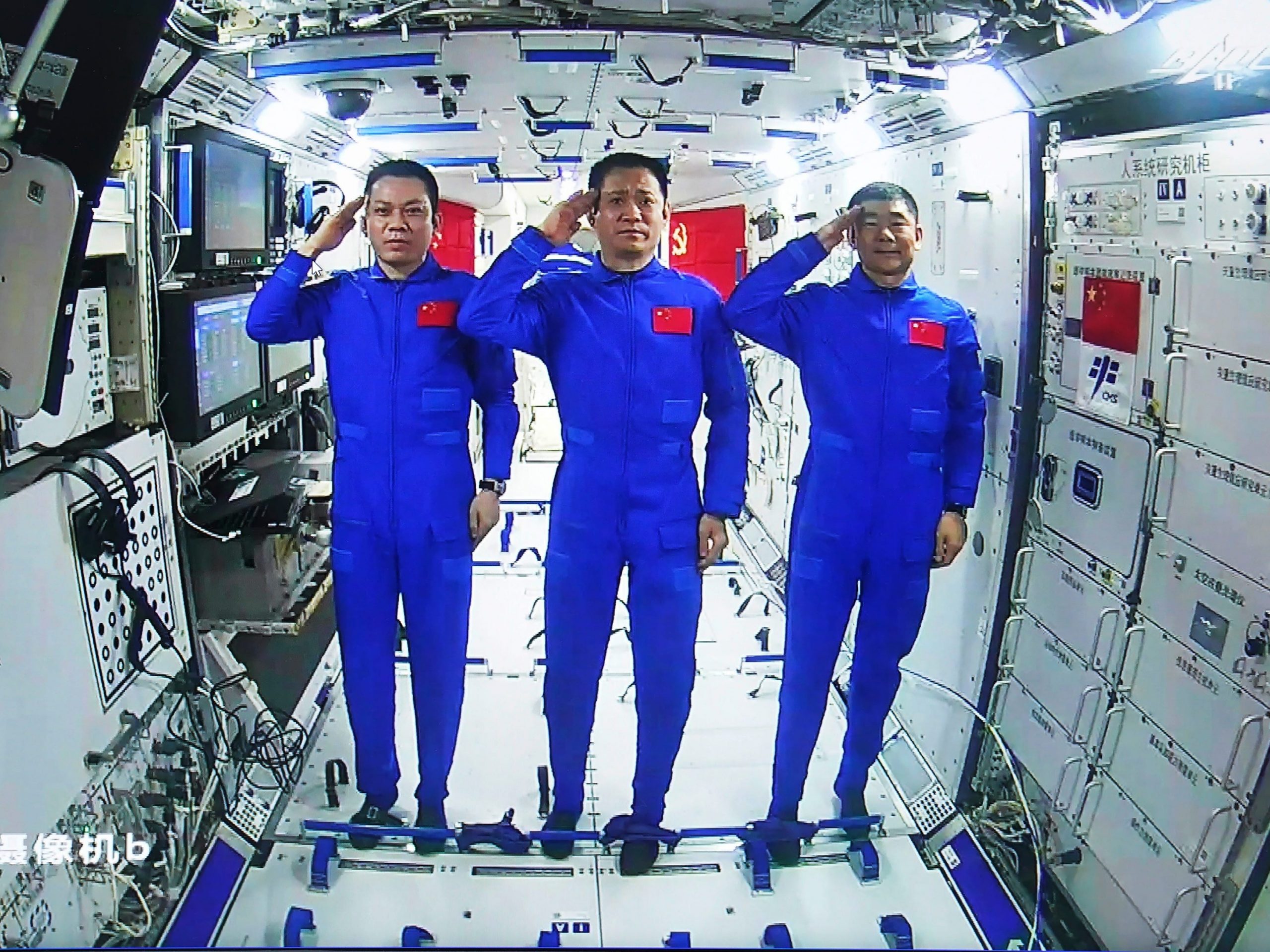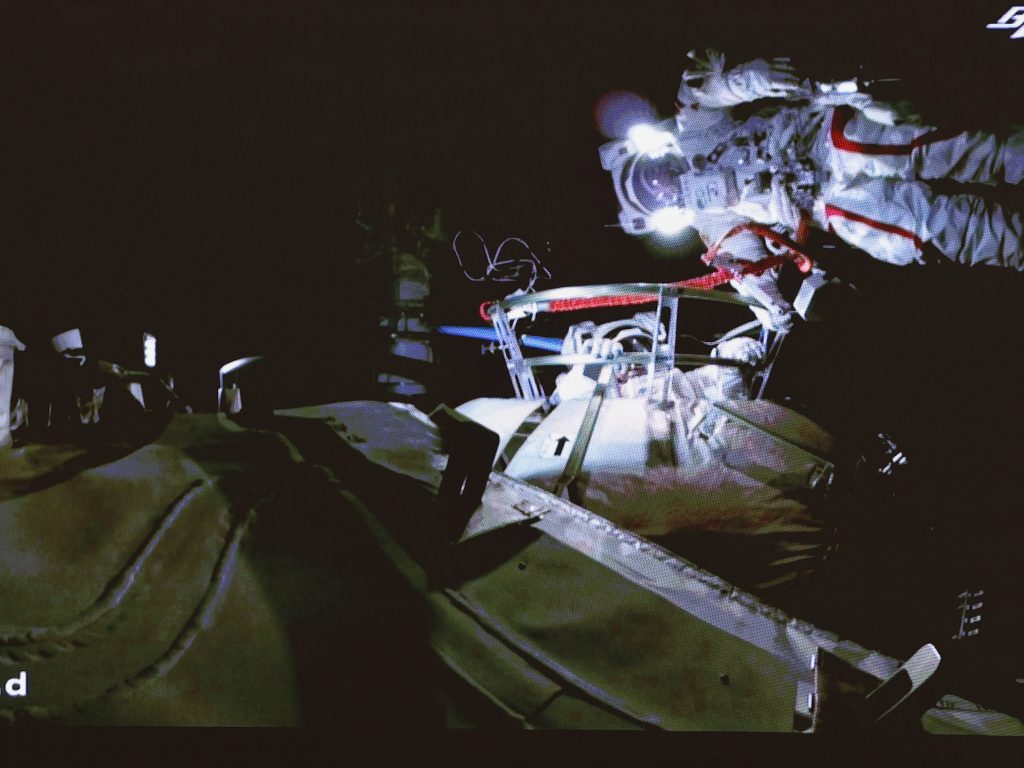
Jin Liwang/Xinhua via AP
- On Sunday, two taikonauts installed a camera and a 50-foot robotic arm outside their space station.
- They are part of a three-month mission to help build China's Tiangong station, launched in April.
- The last time China completed a spacewalk was in 2008.
- Visit Insider's homepage for more stories.
A pair of Chinese astronauts successfully made the nation's first spacewalk outside its new Tiangong orbital station on Sunday.
Liu Boming and Tang Hongbo spent seven hours outside the station, and were tasked with installing a panoramic camera and a 50 foot robotic arm, per the China Manned Space Agency.
The last time Chinese astronauts exited their spacecraft was in 2008, when Zhai Zhigang performed the country's first spacewalk.
Video footage from China Central Television shows Liu and Tang conducting checks and putting on space suits as they prepared to exit the station. A third member of their team, Nie Haisheng, assisted them with their gear and then waited inside.
"Whoa, it's too beautiful out here," Liu can be heard exclaiming as he pulls himself out of the cabin hatch.
Footage from cameras installed outside and on the astronauts' helmets shows them carrying out various tasks on the central module of Tiangong station, which means "Heavenly Palace."
China flew the trio of astronauts to Tiangong station in June - its first manned trip to space in five years. The mission coincides with the 100-year anniversary of the ruling Communist Party, which celebrated for days with parades, mass dance performances, and a show of military strength.
Tiangong station, launched in late April, is a major milestone in China's ambitious space program.
The country has already already landed probes on the Moon and a rover on Mars. It's also designing a "sky ladder" system that leapfrogs cargo and humans between space stations in a bid to send a man to Mars by 2033.

Yue Yuewei/Xinhua via AP
Since 2011, Chinese astronauts have been barred by the US from the International Space Station for security reasons.
Liu, Tang, and Nie are expected to stay on Tiangong for three months as part of China's effort to continue expanding its modular space station.
